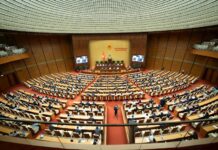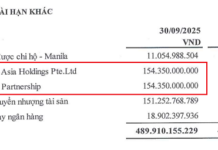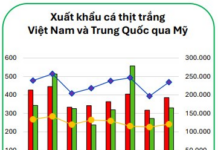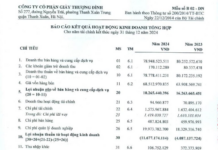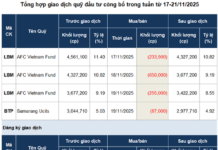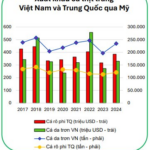Positive impact on the Real Estate Market
In recent years, it can be seen that individuals and organizations who do not establish real estate businesses have been continuously buying and selling valuable properties for speculative purposes. In some cases, land is acquired and divided into smaller plots without completing the necessary investment procedures.
In response to this situation, the Ministry of Construction is seeking feedback on the Draft Report and Draft Detailed Decree guiding the implementation of certain provisions of the Real Estate Business Law 2023 until April 27, 2024. The proposal states that individuals should only be allowed to sell or lease a maximum of 5 houses per year.
Regarding this issue, lawyer Hoang Tuan Vu (Vietnam Law Media Corporation) believes that currently, we have two related issues. From January 1, 2025, only individuals conducting small-scale real estate business will not be required to establish a business or cooperative. Organizations providing real estate services, however, must establish a business or cooperative regardless of scale;
At the same time, according to current laws (Article 10, Clause 2 of the Real Estate Business Law 2014, guided by Article 5 of Decree No. 22/2022/ND-CP), the criteria for “small-scale” have been rather vaguely defined, making it difficult to control cases of “law evasion” for the purpose of speculation and short-term gains.
In particular, the concept of “legitimate ownership” is easily “evaded” and exploited due to the broad interpretation of what is considered legal. In terms of content, the concept of “legitimate” does not require much discussion as the law has already provided detailed regulations. However, when legality is not restricted in terms of quantity or area, the risk of speculation and property flipping increases
Overall, the proposed regulation, which aims to control quantity and area, is expected to have a positive impact on the real estate market:
Firstly, this regulation will contribute to transparency and clarity regarding the criteria for small-scale real estate businesses operated by individuals. This will help individuals easily navigate the selling and leasing procedures for properties they own, without the need for large-scale, frequent business activities;
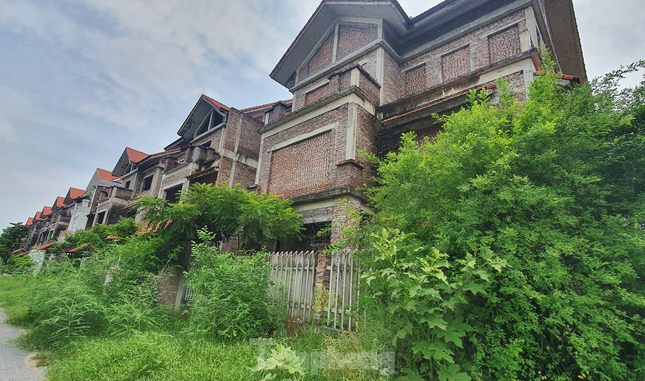
According to the proposal, individuals conducting small-scale real estate business would be allowed to sell or lease a maximum of 3-5 houses or apartments per year before they are required to establish a business.
Secondly, this regulation will also limit the speculation of land and property flipping. Individuals with intentions to invest in a large area of real estate for purposes such as flipping or leasing properties will have to reconsider due to the restrictions on quantity and area as proposed by the Ministry of Construction;
Thirdly, this proposal will contribute to the overall professionalization of the real estate business. When business activities are regulated and subject to the law’s provisions on enterprises and individual businesses, they will be more transparent and professional compared to small-scale, non-frequent individual businesses.
“However, in my opinion, in order to really limit the problems of speculation and property flipping, we need stronger regulations with a broader scope. We can learn from the experiences of leading countries such as Singapore or the United States,” added lawyer Hoang Tuan Vu.
Preventing speculative activities
Meanwhile, real estate expert Tran Xuan Luong, from the National Economics University, told Tien Phong that he supported the idea of managing small-scale real estate businesses operated by individuals, but controlling the number of units sold would not be appropriate.
According to Tran Xuan Luong, we need to clearly distinguish between the concepts of investment business establishment and service business. Here, investment business establishment refers to activities such as property development. “Real estate is a special type of commodity, so countries around the world restrict individual investment for the purpose of property development.
In Vietnam, individual property development is permitted. However, in order to tighten control, we cannot quantify the number of units sold or leased because it does not conform to international standards,” explained Tran Xuan Luong.
Tran Xuan Luong believes that instead of quantifying the number of units, we should focus on the value of the transactions. This can be accomplished by developing the real estate valuation industry. Proper property valuation will determine the true market value and the amount of tax individuals need to pay, avoiding revenue loss.
In conclusion, real estate agent N.T.K (39 years old, Ha Dong, Hanoi) stated that, in general, the proposal to limit individuals to selling or leasing a maximum of 5 properties per year is good. This can help prevent speculative activities, increase market transparency, and reduce chaos.
Additionally, K suggested the need for regulations on personal income tax (PIT) for property transfers based on ownership duration. Currently, the PIT for a real estate transaction is 2%. However, if the property has been owned for less than 1 year, the tax rate will be higher. It will only be eligible for the 2% tax rate after 3-5 years…







